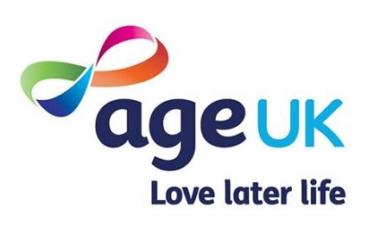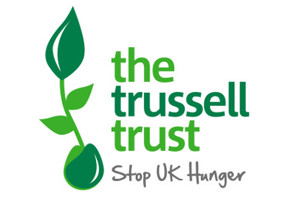Age UK has begun a consultation on redundancies due to the “devastating impact” of temporarily closing its charity shops.
The charity has said that some of its shops will close permanently, leading to redundancies in its retail division. But it also expects more redundancies across Age UK to follow.
Age UK has brought back just under 200 staff from furlough, mainly to support the reopening of some of its shops. A further 1,100 Age UK staff remain furloughed, the vast majority of whom are from the retail division, with the others working in non-public-facing roles within the charity.
Meanwhile, other large charities contacted by Civil Society News have said that they are gradually bringing people back from furlough, but have not ruled out making redundancies.
One charity that has already announced that it is consulting on redundancies is RSPCA, where up to 300 staff are affected.
Breast Cancer Now has also said it could make 60 people redundant as part of plans to deal with a projected loss of income.
Age UK: 'Devastating impact' of shop closures
Age UK is currently consulting on the redundancies and has said it is not able to provide further information or numbers of expected redundancies.
The charity told Civil Society News: “Sadly, but inevitably, we also expect more redundancies across Age UK to follow as we continue to assess the devastating impact that the temporary shop closures and the wider Covid-19 health crisis have had on Age UK’s finances, and make difficult decisions to ensure that the charity can continue to help older people at a time when the demand for our support is higher than ever.
“We understand that this is a really difficult and unsettling time for everyone and we are keeping staff updated on the significant income challenges we are facing and the hard decisions we're expecting as a result.”
Charities unable to rule out possibility of redundancies
Other charities contacted by Civil Society News said they were not ruling out the possibility of making some staff redundant.
The British Heart Foundation estimates that the crisis is currently costing it at least £10m a month. It has furloughed around 80% of its workforce, the vast majority of whom work in retail shops.
Kerry Smith, director of people and organisational development, said: “Like many organisations including charities, the Covid-19 pandemic has had a seismic impact on our income, causing the closure of our shops, cancellation of fundraising events and the delay or pause of many charitable projects.”
She added: “Now that the government has advised that non-essential shops can reopen, the BHF’s 750 shops and stores across the UK will begin to open in a phased programme throughout June and July, and colleagues will gradually return from furlough to support those openings.”
She said BHF cannot rule out redundancies, stating that the charity is “considering all necessary measures to protect our future”.
Action for Children has 724 staff on furlough, as of 10 June, which represents 18% of the workforce. It had over 900 staff furloughed in early May so the numbers on furlough have dropped in the last month.
The charity said that it cannot rule out redundancies as it emerges from the pandemic.
Cancer Research UK (CRUK) is reviewing its furlough arrangements on a monthly basis. It currently estimates that 350 people will return from furlough by the end of June.
CRUK believes this number will then increase significantly by the end of July as it reopens retail shops on a phased basis from 29 June.
It estimates that around 15-20% of the 350 staff returning from furlough in June will come back under the flexi-furlough scheme, which means they can come back on a part-time basis.
Some 2,000 employees overall have had their furlough extended past the end of June.
Michelle Mitchell, chief executive at CRUK said: “We made some changes early on to mitigate the impact of Covid-19. This included the very difficult decision to cut some of our research funding, as well as a temporary reduction in pay and hours for all staff.
“However, the tough reality is that we will need to make some fundamental changes to the way we operate, given that our fundraising income is predicted to reduce by at least 25%.
“We haven’t made any decisions yet, but we are examining what our organisation will look like and the long-term changes we need to make. We’re keeping our dedicated, hard-working staff up to date on developments as we have them, and their professionalism throughout this period has been hugely appreciated.”
Low numbers of staff being bought back from furlough
Employees must have been furloughed by 10 June for an employer to benefit from the scheme.
From July employees can come back from furlough on a part-time basis while still being able to claim for the time they are not at work. Employers will have to pay 100% of wages for the hours worked.
The Coronavirus Job Retention Scheme will close on 31 October 2020.
RSPB told Civil Society News that it has brought 188 employees back from furlough, and around 900 staff have been extended beyond the original end of June closure of the scheme.
The British Red Cross stated that 400 of its staff have returned or are in the process of returning from furlough, while 750 staff have had their furlough period extended.
Macmillan Cancer Support has furloughed around 600 people. It has been using a rota system for many teams, which means that staff have both moved onto furlough and returned from furlough during this time.
Leonard Cheshire has around 190 employees currently on furlough. A spokesperson said: “Of those furloughed, most are people who have been told to shield, whom we are supporting in line with government guidance.
“We are currently undergoing an organisational review of some of our non-front-line activities, but this is not directly related to Covid-19.”
Salvation Army: 'We are spending more than £20,000 per week on PPE'
The Salvation Army has bought 146 people back from furlough and begun reopening services, charity shops and support functions. It currently has 1,045 staff on furlough.
The charity said it is spending more than £20,000 per week on personal protective equipment (PPE). A Salvation Army spokesperson said: “Many of our officers and staff are providing front-line services to help those hardest hit by the coronavirus and so are still very much at work as we have seen an increase in need for our services.
“However, to keep everyone safe and essential services open, we have also seen a massive increase in costs. For example we are spending more than £20,000 per week on PPE. Therefore we took the difficult decision to furlough in areas that had paused in response to government guidelines such as those working in our charity shops.”
The RNLI furloughed 703 staff and has bought back 180. This means 523 people are currently furloughed.












